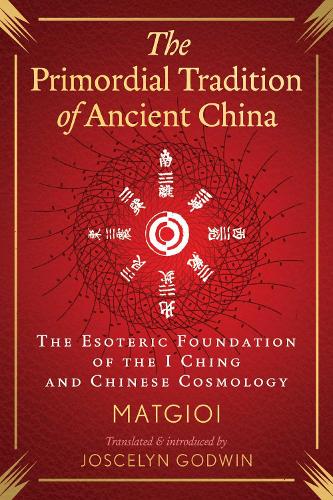
The Primordial Tradition of Ancient China: The Esoteric Foundation of the I Ching and Chinese Cosmology
(Hardback)
Publishing Details
The Primordial Tradition of Ancient China: The Esoteric Foundation of the I Ching and Chinese Cosmology
By (Author) Matgioi
Translated by Joscelyn Godwin
Inner Traditions Bear and Company
Inner Traditions Bear and Company
4th March 2026
United States
Classifications
General
Non Fiction
Mysticism, magic and alternative spiritual practices
Mysticism
History of religion
Physical Properties
Hardback
192
Width 152mm, Height 229mm
377g
Description
The first English translation of Taoist occultist Matgiois seminal work
Shares a deep understanding of the I Chings cosmological foundation
Offers the meanings of the straight and broken lines of the 64 hexagrams
Explains how the symbol of the yin-yang represents the individuals destiny, including his emanation from, and reintegration into, Perfection
First published in French in 1905, and now translated into English for the first time, Matgiois book became the metaphysical core of the Traditionalist movement established by French occultist Ren Gunon, Julius Evola, and Ananda Coomaraswamy.
Translator Joscelyn Godwin tells how Matgioi was initiated into a Taoist secret society and was given rare access to the perennial wisdom of that tradition. His work reveals the great antiquity of Emperor Fohi, who set down the cosmogonic principles upon which the I Ching is based, and lived more than 2,000 years before Moses. Matgioi regarded Fohi as representing a school of sages unbound to any century since their wisdom is as old as humanity itself. The I Ching crystallizes a first and truest insight into the nature of reality from which the ancients derived a practical philosophy. Chinese traditionalists regard the I Ching as the first monument of consciousness and Matgioi explores it and equally important treatises by Fohis successors. Learn the divine nature of Chinese script, the relationship of logos and symbol, and the multiple shapes of the universe. Matgioi also explains how the yin-yang symbolizes ones destiny, including his emanation from, and reintegration into, Perfection.
This key work echoes Emperor Fohis belief that the solutions to all questions can be found by bringing them back to their sources.
Author Bio
Eugne Albert Puyou, comte de Pouvourville (August 7, 1861December 30, 1939), known later by his Taoist name, Matgioi, was a French orientalist, warrior, novelist, and translator. He spent many years in Asia, studied with a Taoist master, and was initiated into a Taoist secret society. Joscelyn Godwin was a professor of music at Colgate University and is the author, editor, and translator of many books including Cosmic Music, The Golden Thread, and Atlantis and the Cycles of Time. Known for his translations of Fabre dOlivet and Julius Evola, he lives in Hamilton, New York.
